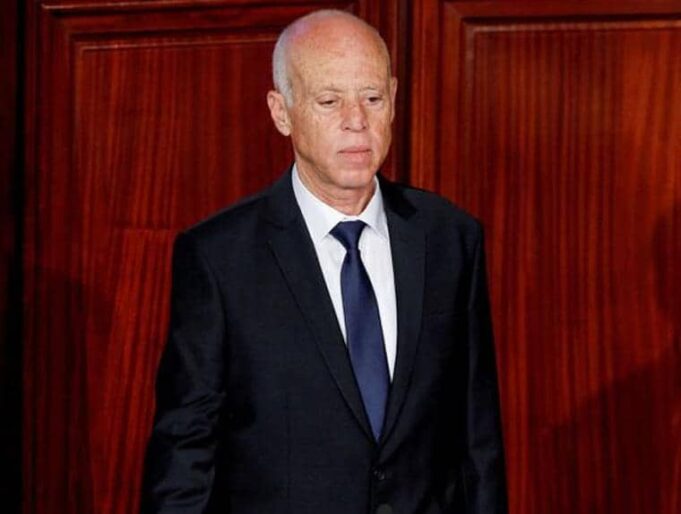Dozens of opposition figures in Tunisia returned to court on Tuesday under heavy security measures, even as six of the detained defendants continue their hunger strike to protest being barred from attending in person.
Foreign diplomats observed the proceedings for around 40 high‑profile accused, including activists, lawyers and media personalities known for their criticism of President Kais Saied.
Saied, who consolidated power with a sweeping takeover in 2021, faces growing international concern over a perceived rollback of democratic freedoms in the country that once emerged as the Arab Spring’s lone success story.
The defendants stand charged with offences such as “plotting against the state security” and “belonging to a terrorist group,” accusations that carry potentially severe penalties, including the death sentence.
When the trial first opened on March 4, Tunisia’s judiciary ruled that the defendants could only join hearings remotely.
Six of them—among them jurist Jawhar Ben Mbarek and former Ennahdha party leader Abdelhamid Jelassi—have since refused food until they are permitted to attend court sessions in person, their legal team said.
One of their lawyers, Abelaziz Essid, argued in court: “The defence asks that the hearing be suspended and the accused be brought before their lawyers. We cannot make our arguments under these conditions and we refuse to be false witnesses.”
An AFP correspondent reported that checkpoints and uniformed guards surrounded the courtroom entrance in Tunis.
Representatives from France, Canada, Germany, the Netherlands and the European Union were admitted, but local non‑governmental organisations were turned away, and only one family member per defendant was allowed inside.
Ahmed Nejib Chebbi, head of the National Salvation Front and himself named in the case, dismissed the charges as “wild fabrications.”
Defence lawyers added that some accused are alleged to have maintained contacts with foreign diplomats—contacts that the authorities have deemed suspicious.
Several defendants were detained in February 2023 after Saied publicly branded them “terrorists.”
Others, including Chebbi, remain free pending trial, while some have fled abroad, according to the defence committee.
Human Rights Watch has condemned the proceedings as a “mockery” based on “abusive charges.”
In February, Rached Ghannouchi, the 83‑year‑old leader of Ennahdha, received an additional 22‑year prison sentence for plotting against state security. Ennahdha has long been the main opposition party to Saied’s administration.
Last month, the United Nations called on Tunisian authorities to end “the pattern of arrests, arbitrary detentions and imprisonment of dozens of human rights defenders, lawyers, journalists, activists and politicians.” Tunisia’s foreign ministry rejected the UN’s statement with “astonishment” and accused it of “inaccuracies.” “Tunisia can give lessons to those who think they are in a position to make statements,” it said.

















